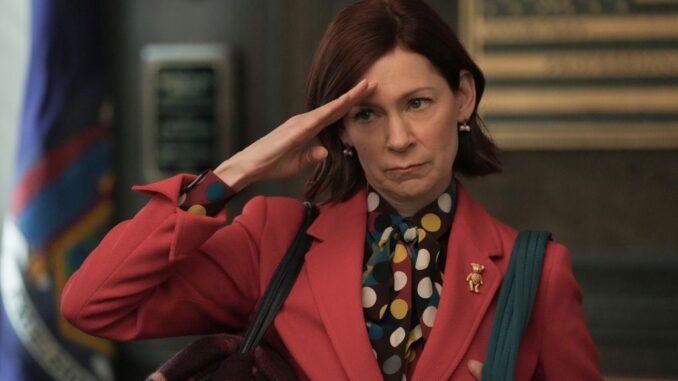
The legal drama, a perennial favorite on our screens, offers a fascinating tableau of intellect, wit, and moral ambiguity. Within this rich landscape, a distinct subgenre has emerged: the pursuit of truth, the unmasking of the culprit. While shows like The Good Wife, The Good Fight, and the recent Elsbeth are intrinsically linked through shared characters and universe, they each present a unique approach to justice and, crucially, to the act of “crime-solving.” The question then arises: among these formidable women, who truly reigns as the crime-solving queen?
To answer this, we must first define “crime-solving.” Is it the meticulous building of a legal defense to exonerate the innocent, or the shrewd prosecution that secures a conviction? Or is it the more primal act of deduction, observation, and psychological insight that uncovers the hidden truth of “whodunit” before the lawyers even step into court? When viewed through this lens, the crown unequivocally belongs to Elsbeth Tascioni.
Elsbeth Tascioni, in her eponymous new series, steps out of the shadows of supporting character to take center stage, revealing the full breadth of her preternatural observational skills. From her initial appearances in The Good Wife and The Good Fight, Elsbeth was always the unexpected wild card, the seemingly ditzy lawyer whose tangential ramblings would inevitably stumble upon the singular, crucial detail everyone else missed. Now, as a New York City police consultant, her quirks are her superpowers. She doesn’t pore over forensic reports with a magnifying glass; she observes people. Her mind, an intricate, non-linear labyrinth, processes human behavior, inflections, tells, and seemingly innocuous details that betray the guilty.
Consider Elsbeth’s methodology: she rarely approaches a case with a traditional detective’s mindset. Instead, she enters a scene, or an interview, with an almost childlike curiosity, asking questions that seem irrelevant, making observations that appear trivial. Yet, beneath this disarming exterior lies a razor-sharp intellect that connects disparate dots. She’ll notice a person’s repeated hand gesture, an overly emphatic denial, a misplaced accessory, or a subtle shift in a narrative that others dismiss as eccentricities. Her genius lies in her ability to see the forest through the trees, not by zooming out, but by scrutinizing the most peculiar, often overlooked leaf. She solves crimes by understanding the psychology of the criminal, predicting their next move, and identifying the moment their perfect plan faltered. She is less a lawyer and more a human lie detector, a master of subtle deduction who sees the truth shimmering beneath layers of pretense and legal obfuscation.
Now, let us turn to the formidable Alicia Florrick from The Good Wife. Alicia’s journey is one of resilience and transformation. Forced back into the legal world by her husband’s public scandal, she evolves from a hesitant defense attorney into a shrewd and often morally ambiguous legal strategist. Alicia is a queen of the courtroom, a master of cross-examination, discovery, and the intricate dance of legal procedure. She “solves” cases by meticulously building arguments, dissecting evidence, and exploiting legal loopholes. Her brilliance lies in her ability to anticipate the opposition, to find the compelling narrative that sways a jury, or to uncover the procedural error that leads to a mistrial. She is a warrior in the legal arena, fighting for her clients’ freedom and, often, her own survival. But Alicia rarely unearths the initial “whodunit.” Her genius is in navigating the aftermath, maneuvering the pieces once the crime has already been committed and the players identified. She defends or prosecutes the accused; she does not, typically, unmask the perpetrator from a pool of suspects through deductive reasoning.
Similarly, Diane Lockhart, a towering figure across both The Good Wife and The Good Fight, embodies integrity, power, and a fierce commitment to justice. Diane is a brilliant litigator, specializing in high-stakes civil cases, often with profound political and social implications. Her “crime-solving” is less about individual perpetrators and more about dismantling systemic corruption, fighting for civil rights, and battling against the insidious forces that threaten the legal and political landscape. She “solves” the larger societal dilemmas, strategically pursuing justice through landmark cases, powerful arguments, and unwavering ethical resolve. Diane’s brilliance is in her ability to see the broader tapestry of injustice and to wield the law as a powerful instrument for change. She challenges the very foundations of power, but the nitty-gritty of identifying an individual criminal is not her primary domain.
In a direct comparison, while Alicia and Diane are undoubtedly queens of the courtroom and paragons of legal strategy, their expertise lies in the application of law after a crime has been alleged. They are architects of defense and prosecution, brilliant at navigating the judicial system. Elsbeth, however, operates on a different plane. She is the detective, the sleuth, the one who possesses the uncanny ability to unravel the mystery of the crime itself. She sees the truth that is hidden in plain sight, the subtle incongruities that betray guilt, the psychological tells that scream “I did it.”
Her unconventional methods, often dismissed as scatterbrained, are precisely what make her unparalleled. While Alicia and Diane construct their cases with meticulous logic and legal precedents, Elsbeth constructs her understanding of a crime through intuition, pattern recognition, and an almost psychic ability to get inside the head of the perpetrator. She is the one who steps into a room, seemingly distracted, and walks out knowing who committed the crime, even if she can’t immediately explain how she knows.
Therefore, while Alicia Florrick is the Queen of Legal Defense and Diane Lockhart the Queen of Ethical Litigation and Systemic Justice, it is Elsbeth Tascioni who undeniably wears the crown as the crime-solving queen. Her unique, illustrative approach to uncovering truth, through observation and a profound understanding of human nature, sets her apart as the preeminent detective in this interconnected universe, proving that sometimes, the most brilliant minds operate on their own wonderfully eccentric frequencies.
